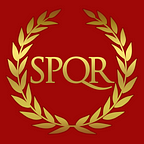Why Did the Gaulish Language Disappear?
The Gaulish language was spoken — by whom, do you think? — by the Gauls, of course. But who were the Gauls? This was the name the ancient Romans used for the inhabitants of a vast territory they called “Gaul.” This encompassed Western Europe, north of the famous Rubicon River, which marked the boundary of Rome. All other non-Italian lands of the Roman Empire were considered colonies, including the areas of Gaul closest to Rome, known as Cisalpine Gaul. As Caesar wrote in “Commentaries on the Gallic War,” from a Roman perspective, Gaul was divided into three regions: Cisalpine Gaul (the north of modern Italy), Transalpine Gaul (modern France, Belgium, the Netherlands, and Switzerland), and Narbonese Gaul (the south of France). The latter was named after the ancient Celtic city of Narbonne. After Roman colonization, Narbonne Gaul was often simply called “the province,” which led to its name after the fall of the Western Roman Empire: “Provence.”
The Gauls were diverse Celtic tribes, and linguists classify the Gaulish language as one of the Celtic languages. Other Celtic languages include Celtiberian (spoken by the Iberians in what is now Spain) and Lepontic. The latter was spoken by some tribes living in…
